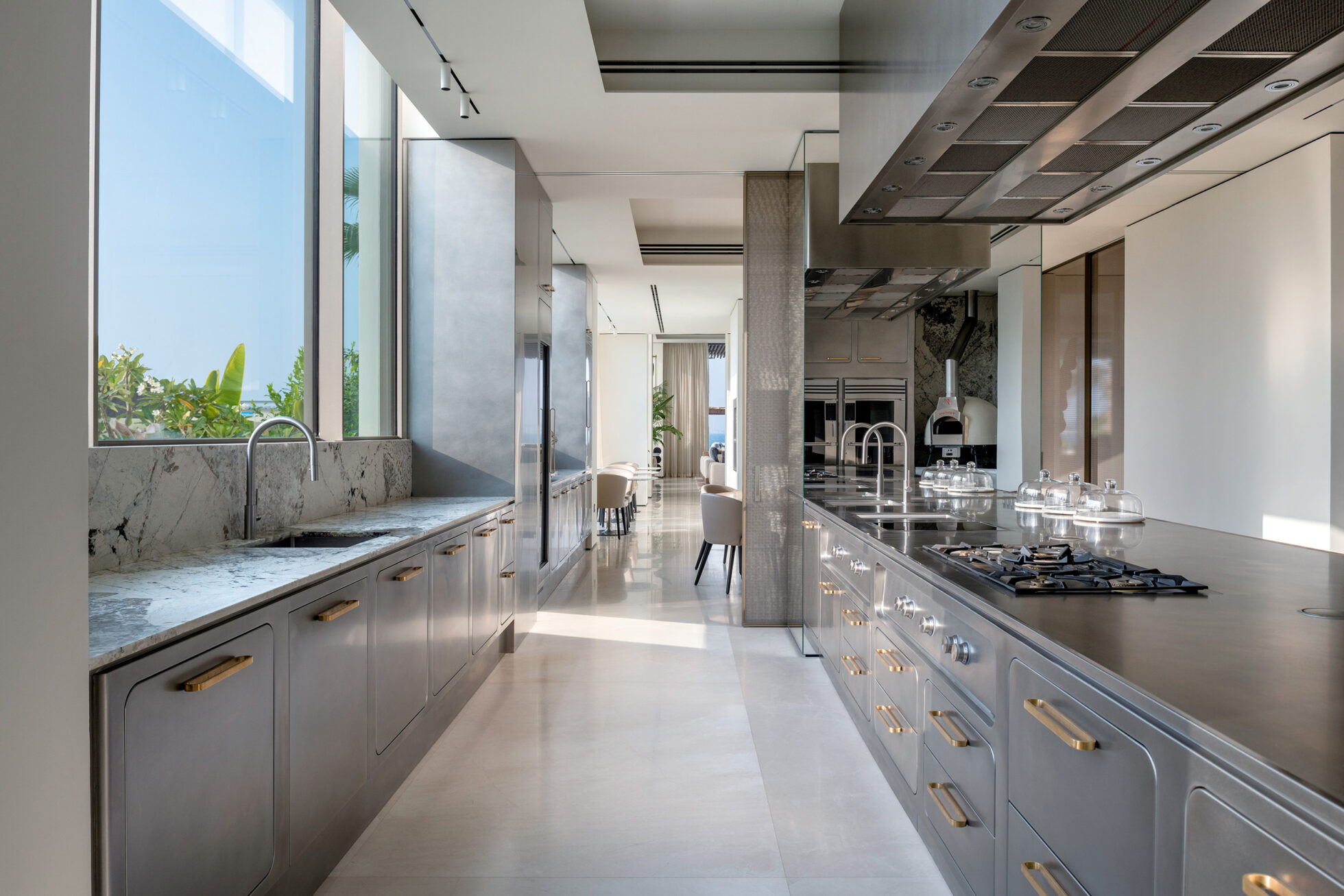
Steel kitchens, synonymous with strength, durability, hygiene and ease of cleaning, are the latest trend. To meet ever-increasing demands, companies tend to offer at least one model.
But if at first glance steel kitchens all look very similar to each other, on closer inspection, we find that this isn’t the case. Not all steel kitchens are created equal.
Materials, workmanship and details can make a huge difference, not only in terms of aesthetics, but above all in terms of performance and durability.
In this Article, we find out why not all steel kitchens are created equal, and at the same time, we see why Abimis kitchens are the most suitable choice for those who want the best from a stainless steel kitchen.
The difference between the different steels lies in the ‘mix’ of elements that they contain: mainly iron, carbon and chromium.
The best steel for kitchens is type AISI 304, which also includes a percentage of nickel. This blend makes the steel harder (almost eternal), very resistant to acids and rust, naturally inert and antibacterial, and therefore suitable for coming into contact with food.
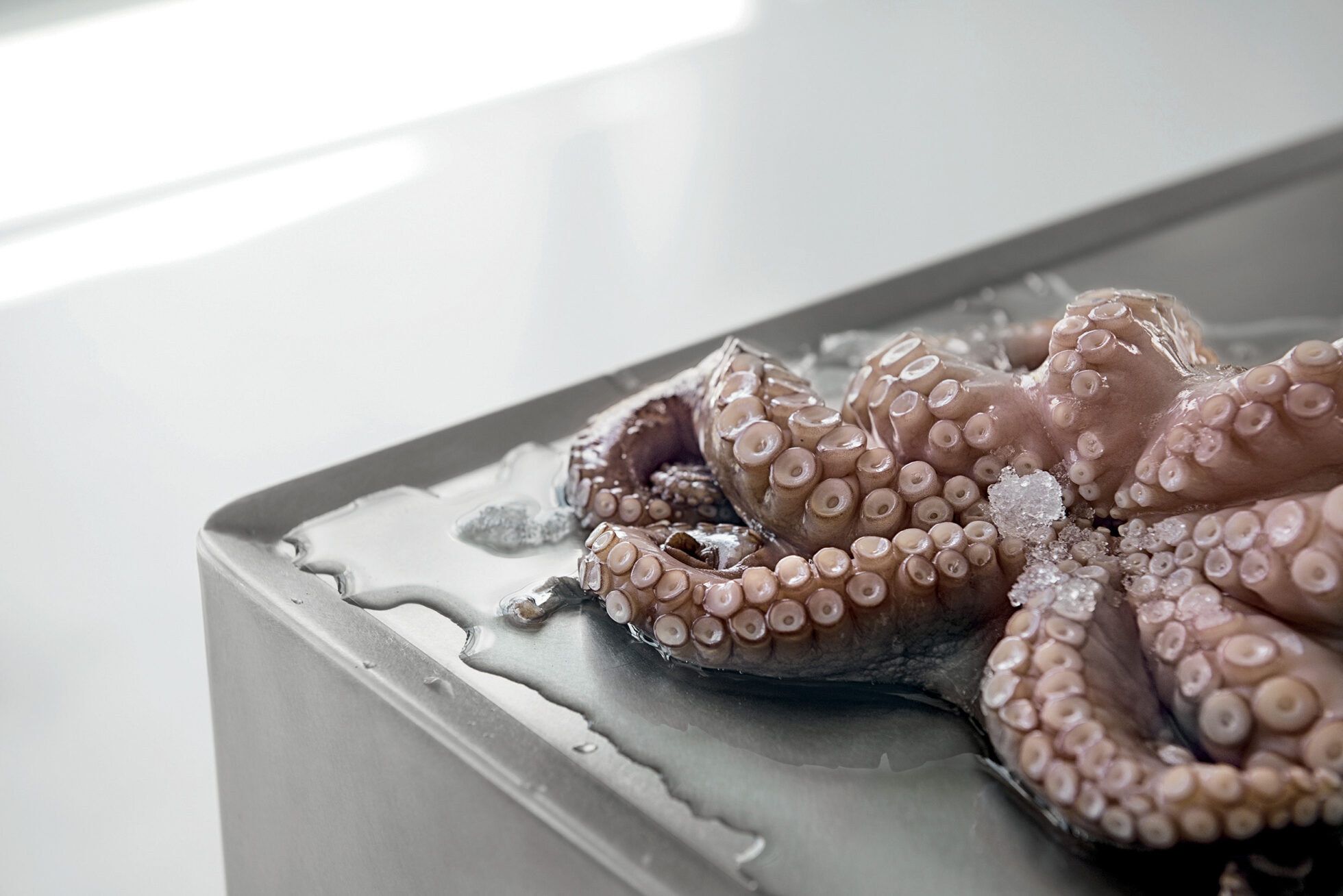
It is no coincidence that AISI 304 steel is the same material of which industrial kitchens are made.
For all its kitchens, Abimis uses exclusively AISI 304 steel. Where higher corrosion resistance is required, it uses AISI 316 stainless steel, a material which, thanks to the addition of molybdenum, is particularly resistant to the aggression of chlorine and saltiness.
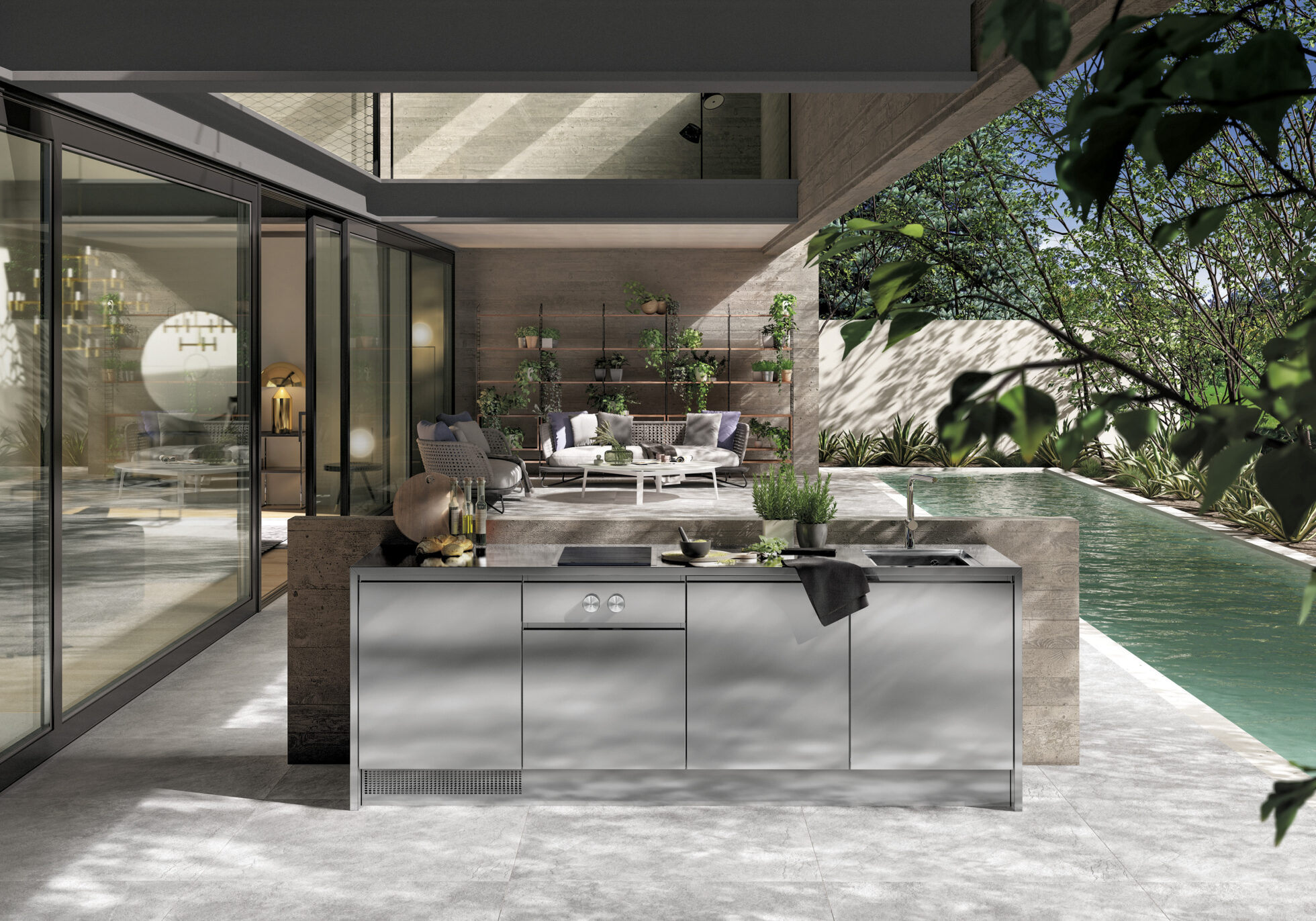
This steel is therefore perfect for seafront kitchens, yacht kitchens or poolside kitchens.
8 reasons to choose a stainless steel kitchen
The thickness of the steel has a major influence on the strength and durability of a kitchen. An excessively thin sheet of steel can compromise impact and scratch resistance. In particular, the thickness of the worktop, the area of the kitchen most susceptible to wear and tear, must be controlled.
For Ego kitchen tops, Abimis uses 2.5 mm thick steel, thus ensuring maximum strength and a strong feel..
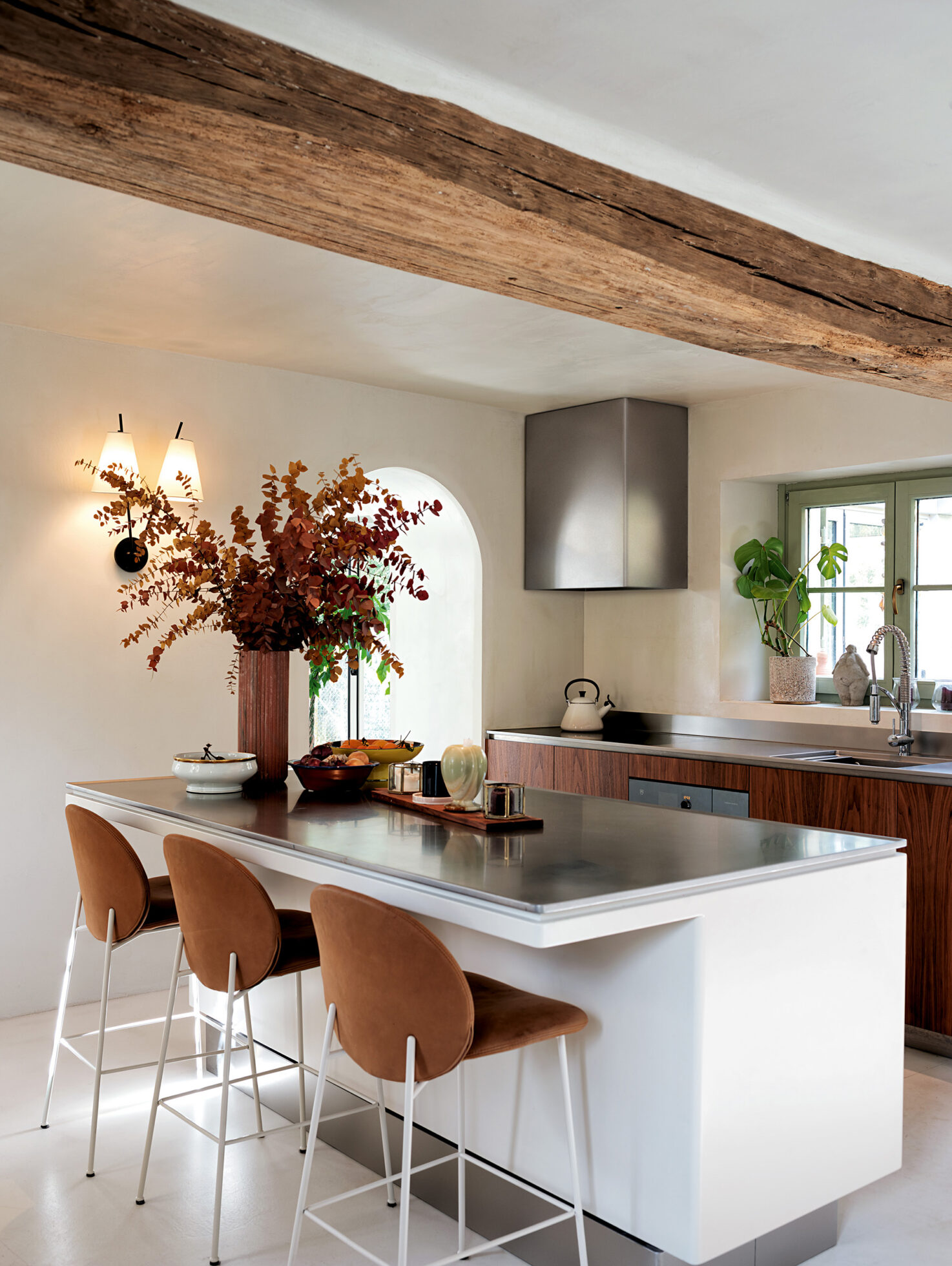
Many commercial kitchens combine different materials: steel on the outside and cheaper and easier-to -work materials on the inside. Or they make load-bearing structures out of particle board or MDF and coat them with thin layers of steel. For many brands steel is just a ‘fashionable dress’ with which to coat the kitchen.
On the contrary, for a chef or a true cooking enthusiast, steel is a conscious choice, which means not only aesthetics but also solidity, hygiene, functionality and performance.
All Abimis kitchens are made entirely of stainless steel. Inside the tops and doors of the Ego kitchens, Abimis includes an aluminium honeycomb core that reinforces the structure without weighing it down.
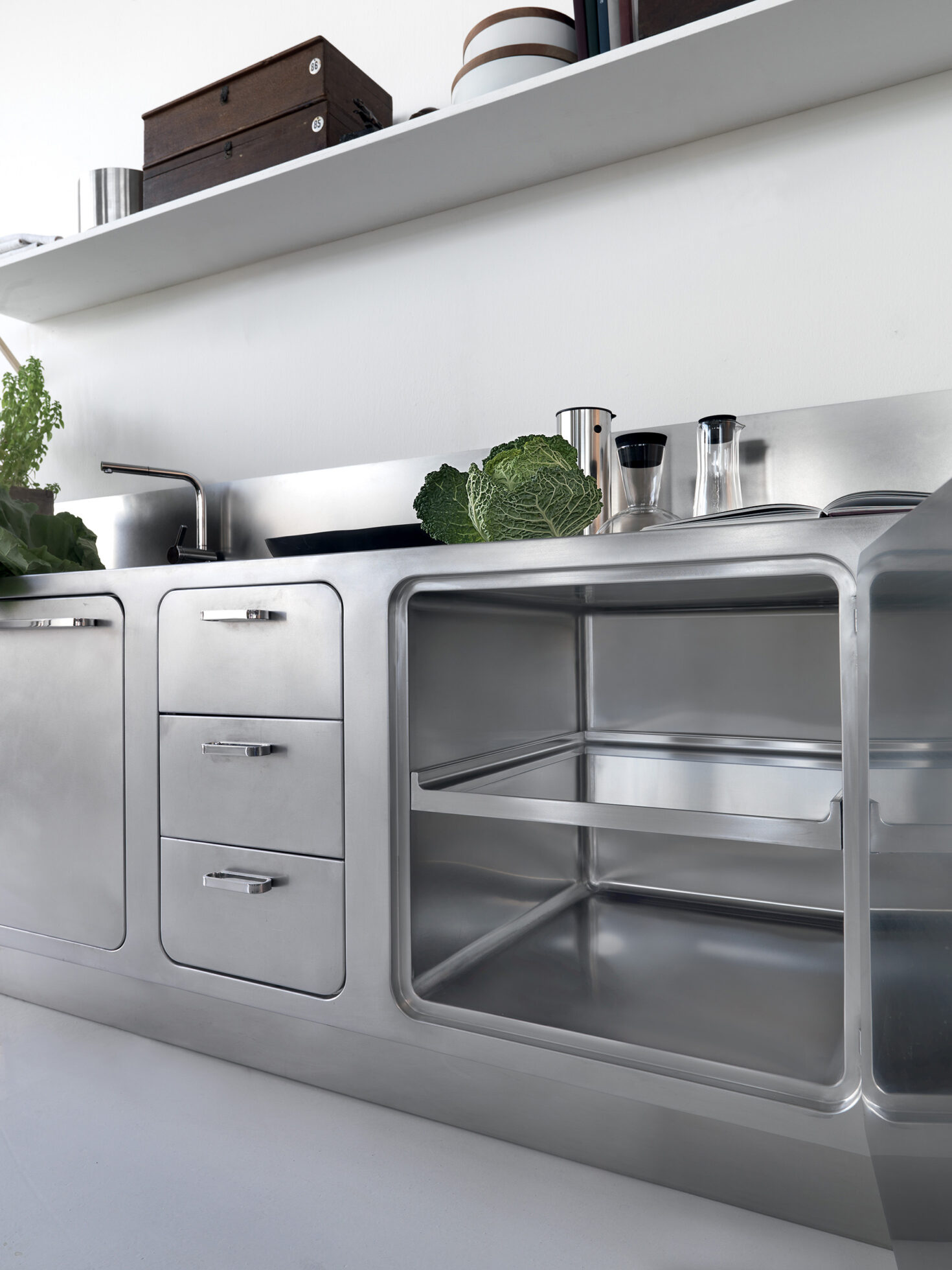
It also prevents the steel from “sounding hollow” and dampens noises when using the worktop or closing the door.
It is true that steel is a naturally hygienic, antibacterial and easy-to-clean material. But only if it is perfectly smooth, without any gaps, holes, seams or screws.
Almost all steel kitchens on the market are made from flanked modules. The top is usually screwed to the base (and is often also cut for inserting the sink); and when it is very long or has complex shapes (an L or U shape, for example), it is made in separate pieces and then screwed or glued.
These discontinuities are also critical points for steel. They are parts that are difficult to clean and sanitise, where food or liquid residues can infiltrate and mould or bacteria can proliferate. All this is to the detriment of the hygiene of the kitchen, even if it is made of stainless steel!
To ensure maximum hygiene, Abimis kitchens are welded in every part, making them a single unit that is easy to clean and sanitise.
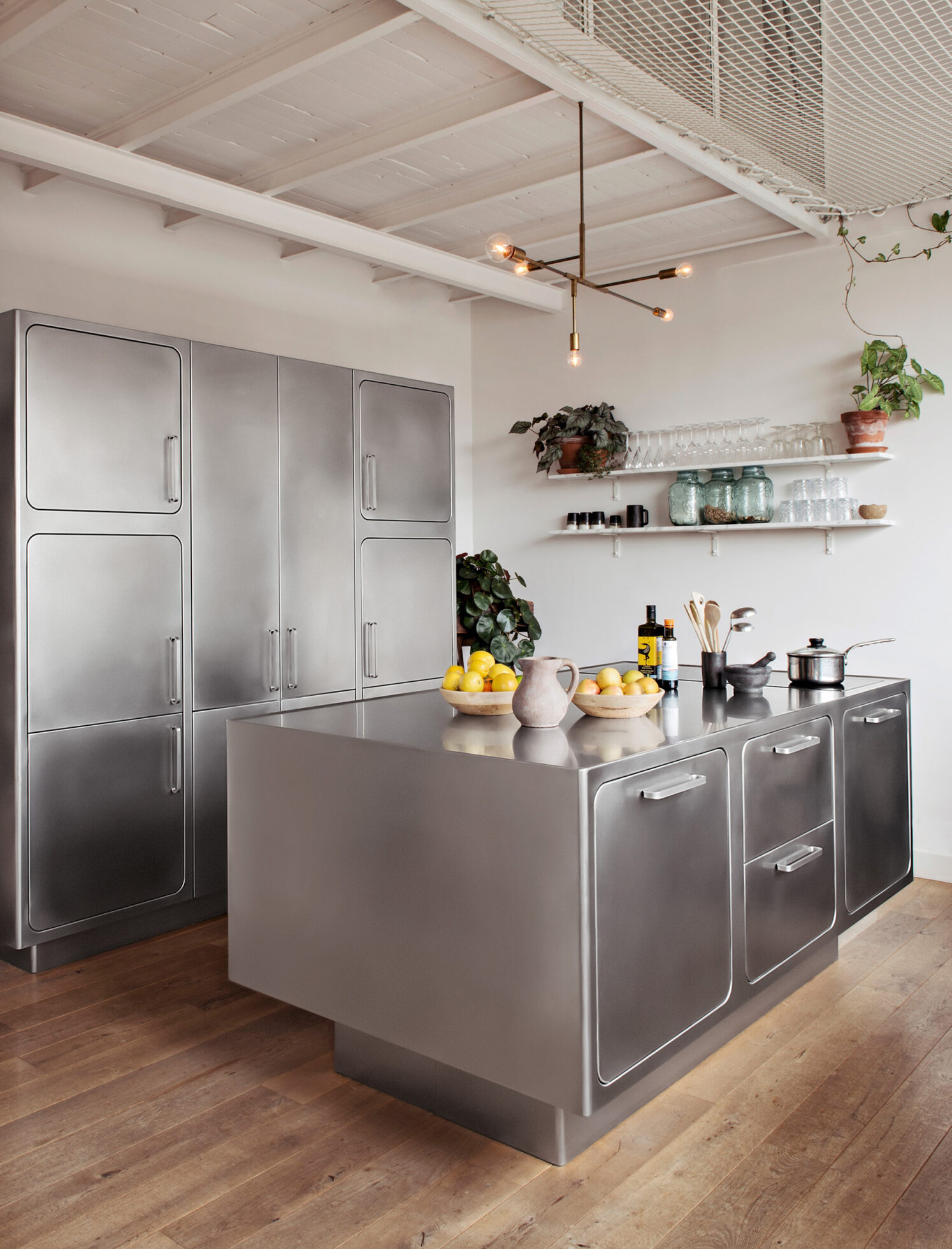
Tops, sinks and handles are also welded to the frame, without visible slots or screws.
How to ensure perfect hygiene in your kitchen
The details, on the other hand, make a big difference. As steel is rather difficult to work with, steel kitchens are very often presented in the form of modules to be combined, with squared and rather simplified elements with little customisation.
Thanks to its many years’ experience in working steel, Abimis is able to customise any model down to the smallest detail.
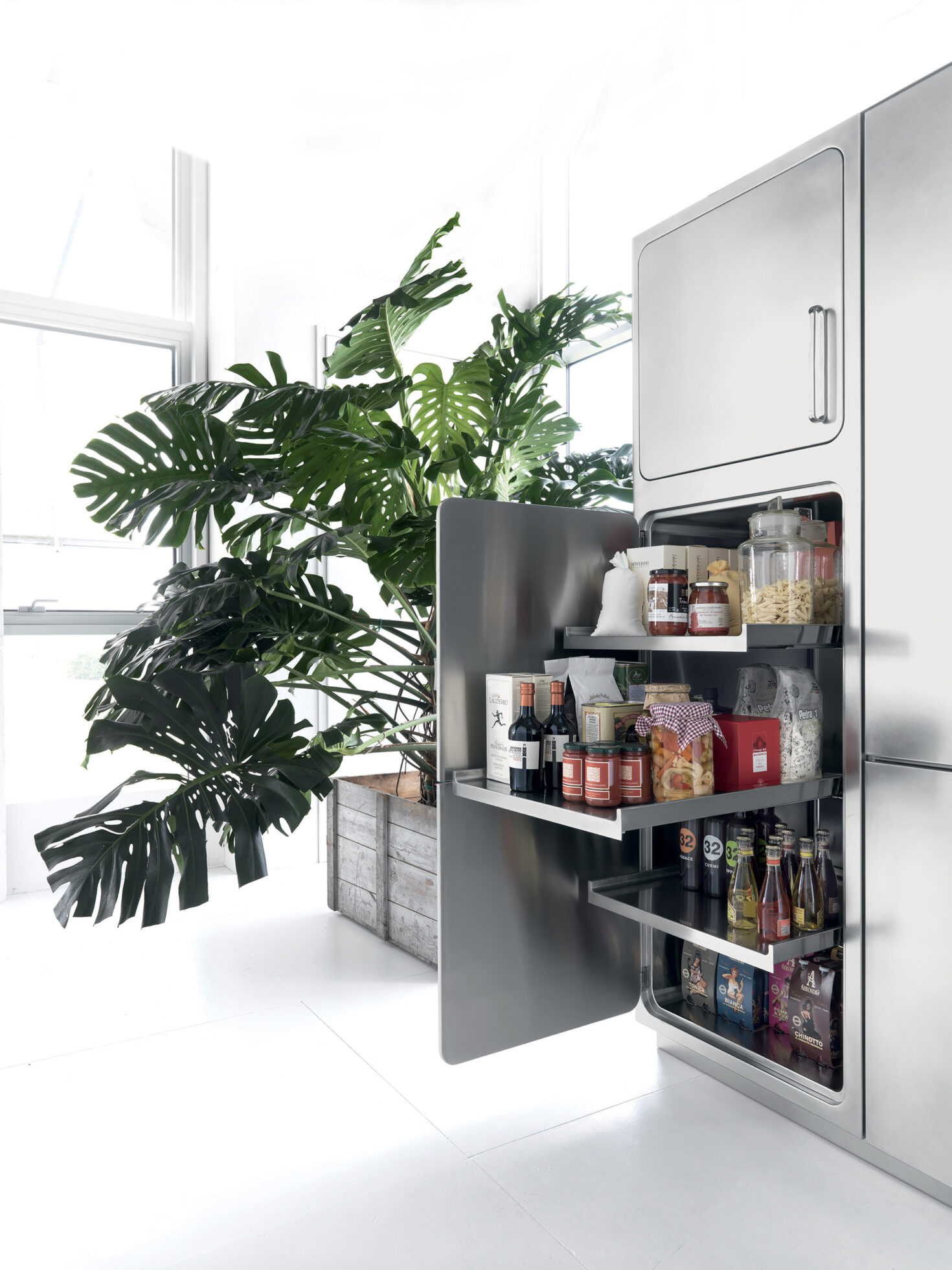
For example, the Ego line stands out for its flush doors with concealed hinges (one of the company’s many patents), its interior compartments with rounded corners and large-capacity pull-out surfaces (up to 60 kg), which facilitate cleaning and storage, the ergonomic recessed skirting board, the top with a drip-stop edge and many other solutions. Every single element has been designed to improve the functionality and aesthetics of the kitchen.
Steel can seem a cold material to the eye and to the touch. For this reason, the finish is very important, as it not only affects the aesthetics of the kitchen, but also the ease of maintenance and cleaning.
The surface of steel kitchens is almost always satin-finished: a mechanical treatment that makes it semi-glossy, but that does not take away the intrinsic coldness of the material.
Two finishes distinguish Abimis kitchens the most. The most popular is undoubtedly the hand-orbitally polished finish, which gives the kitchen a warm, silky look and a pleasant touch.
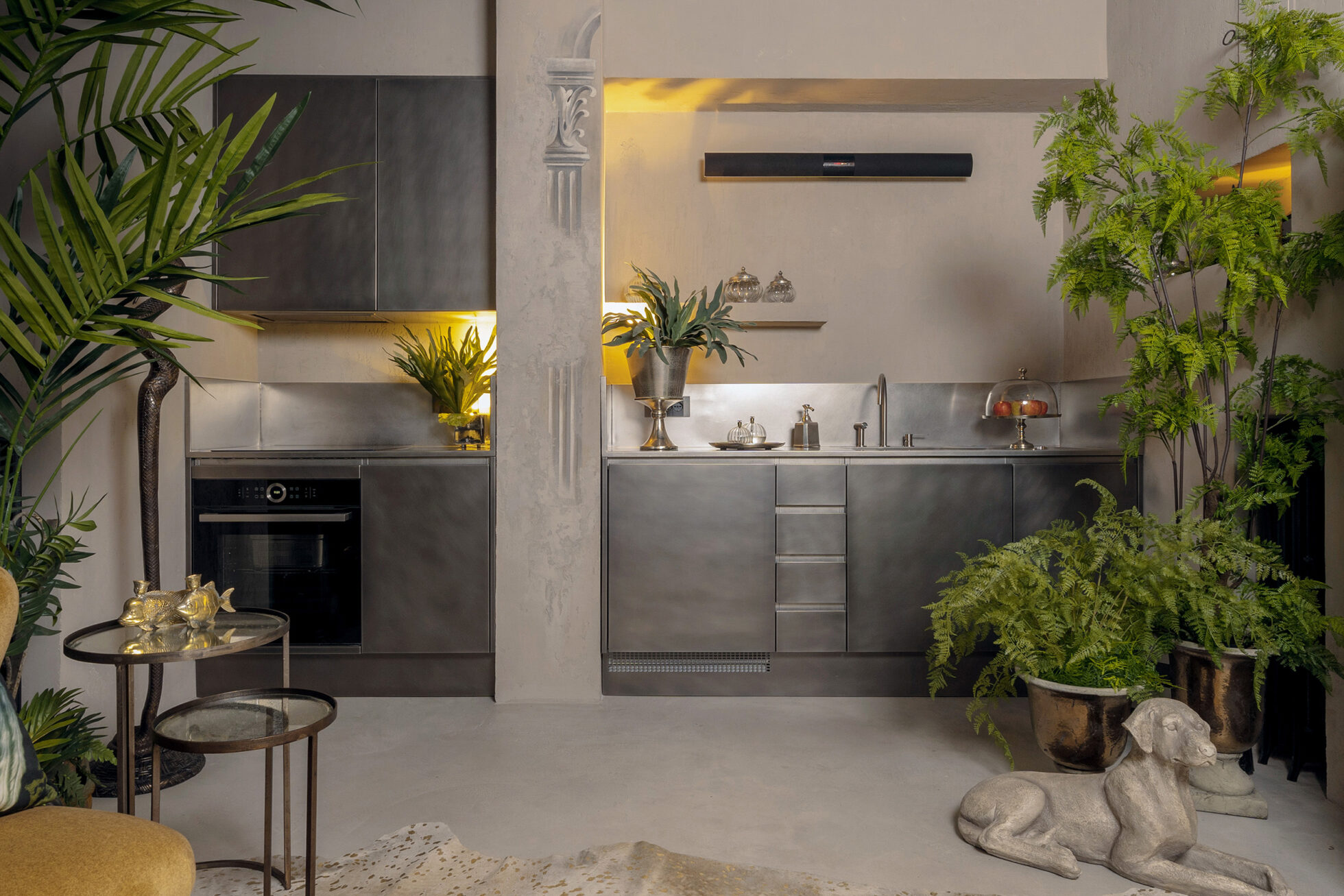
For those who prefer a unique design with character, the mirror-polished finish gives the steel a striking aesthetic impact.
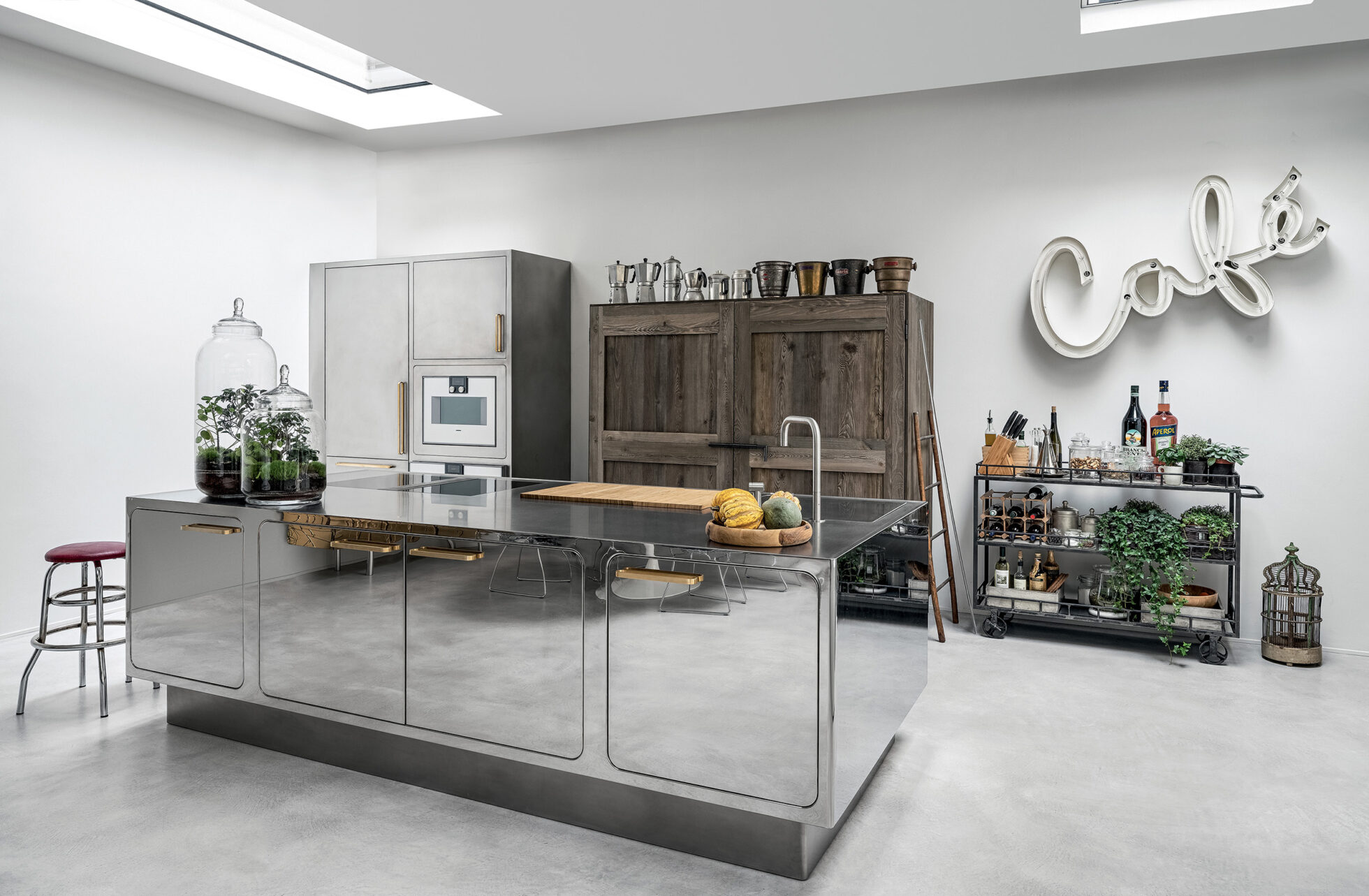
Both are carried out by hand, in-house, by skilled workers.
Most brands offer steel kitchens with standard modules, just like the traditional ones. This makes it difficult to customise solutions, especially in unusual spaces, with angles that are not 90°, or where there are alcoves, columns, or other discontinuous wall features.
Abimis’ philosophy is to ensure that every customer has a unique and personalised design. For this reason all its kitchens are made to measure, by hand, ‘to the millimetre’.
Abimis knows no bounds. In the most demanding situations, the kitchens are welded and finished on-site, so that they fit perfectly into the space where they are installed.
To prove this, the Abimis warehouse contains no semi-finished goods of any kind, but only raw materials: the best steel for kitchens.
In addition to the quality of the product, the services offered by the company, both to the designer and to the customer, are to be carefully evaluated. This is especially important for highly complex products, such as bespoke kitchens.
Abimis offers a custom-made service for designers and customers, who are assisted step by step until the final design is complete and installed and the kitchen has been tested. Abimis can deliver its kitchens anywhere in the world (it has done so using special cranes, helicopters, snow cats…) and offers an assembly and testing service on site (after initial pre-assembly and testing on company premises).

If the shape or size of the kitchen is such that it cannot be delivered in one block, the kitchen is welded and finished on site.
In addition, Abimis offers a pre-use kitchen cleaning and sanitisation service upon request, as well as an on-the-spot restoration service in case the kitchen surface is scratched or damaged during use.
It’s not easy to make a designer steel kitchen. This is because of the material’s difficulty in machining, as well as the constraints that this material imposes. Therefore, almost all steel kitchens on the market tend to look alike.
Abimis kitchens have always been focused on a unique, personal and extremely distinctive design. For example, the Ego line, designed by the architect Alberto Torsello, stands out for its smooth and rounded lines, inspired by the 1950s, with flush doors and a top without sharp edges, integrated into a single block.
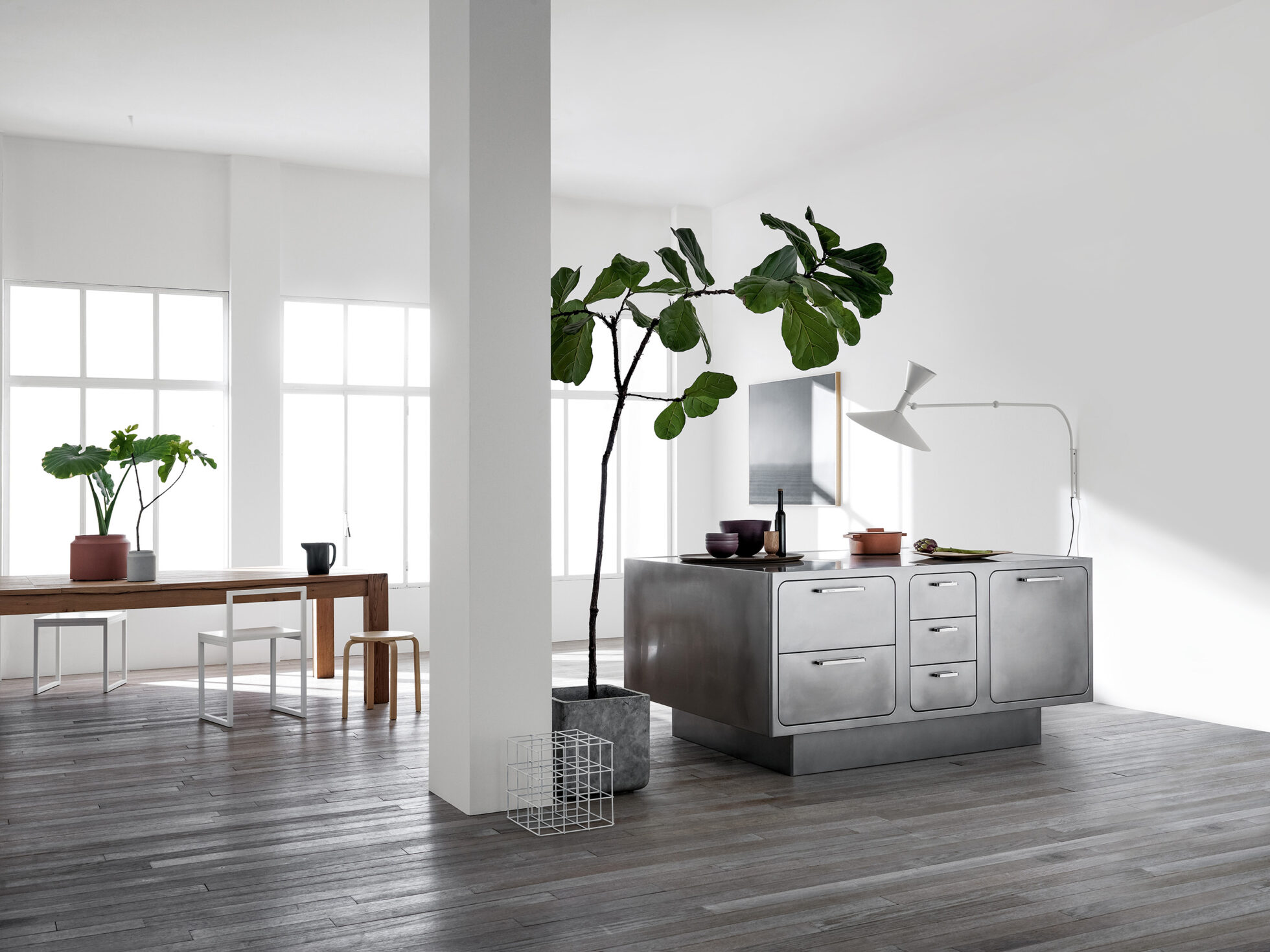
A real challenge due to the complexity of machining steel.
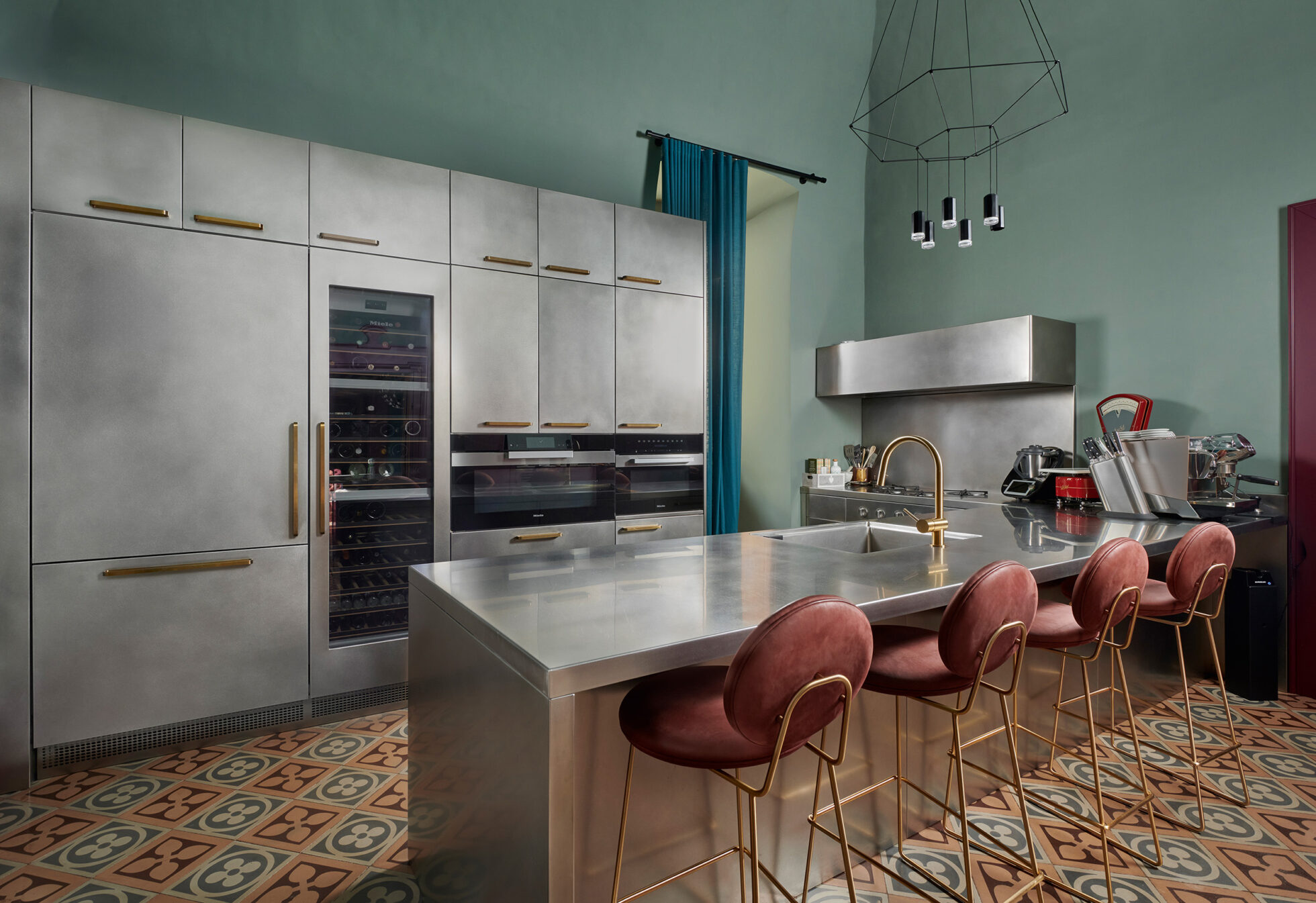
The Atelier collection, with its more industrial look, the outdoor line Àtria, with its architectural shapes (design Delineodesign and M. Rosati) and the storage units of the Alter-Ego line, complete the range of designs of Abimis kitchens.
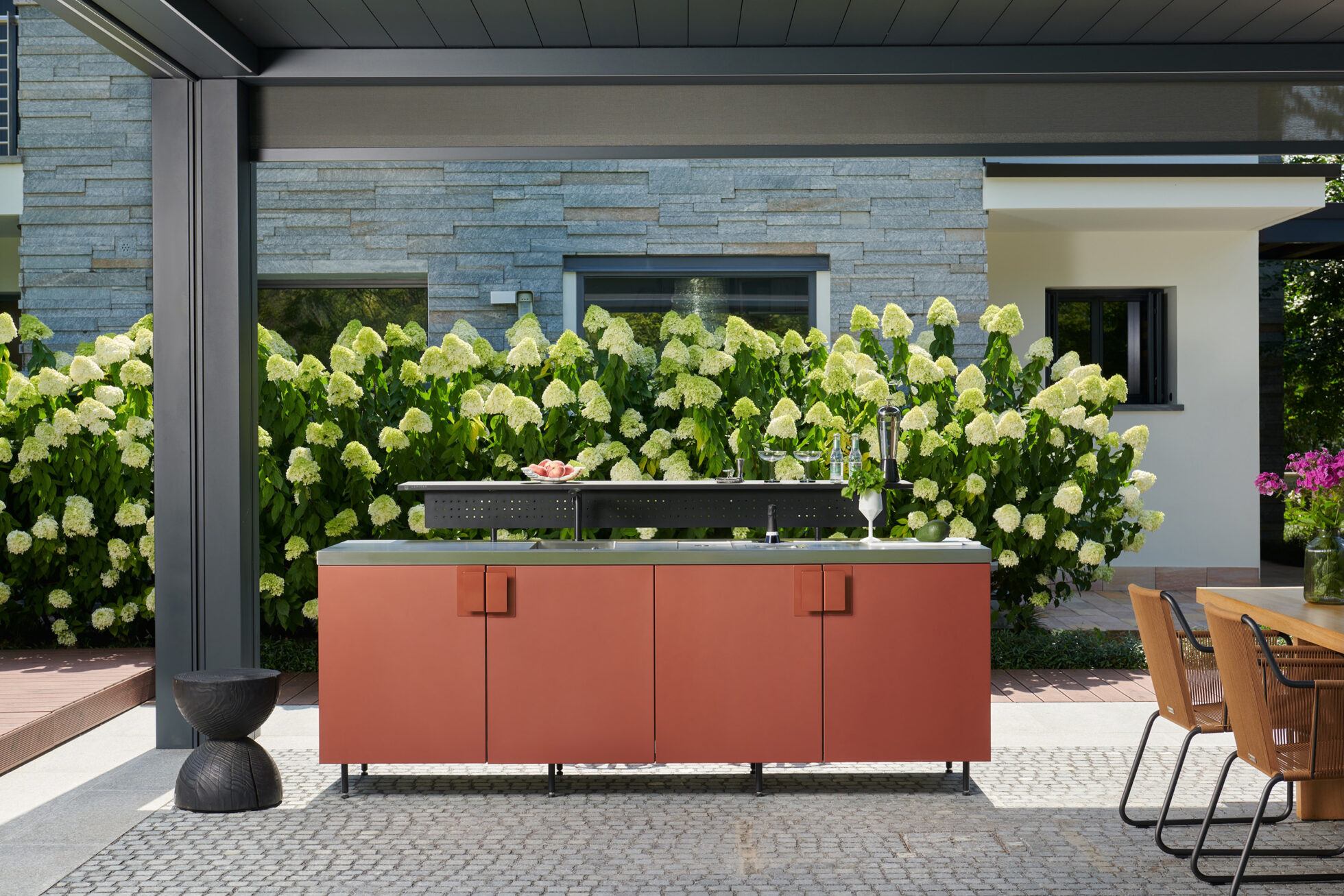
Discover the design of the three Abimis kitchen lines
Several companies have recently started making stainless steel kitchens, to take advantage of growing market demand. For many brands, the steel kitchen is not just one of the many kitchens included in the catalogue.
Abimis was born from the experience of Prisma, a leading company for 40 years in the design and construction of professional steel kitchens for the best restaurants (many of them starred), for large yachts and cruise ships.
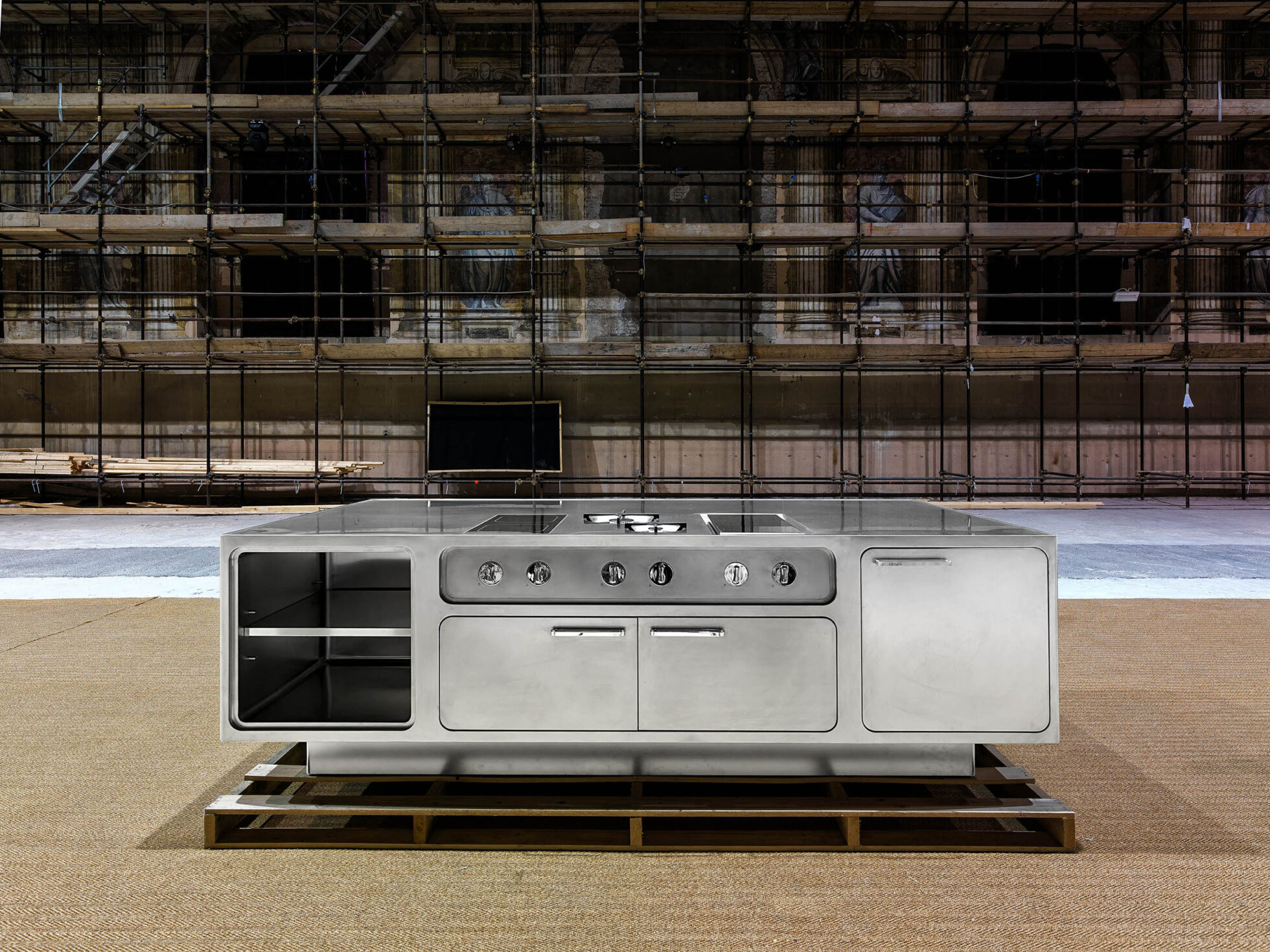
And it was Abimis who pioneered the world of indoor and outdoor domestic kitchens by launching Ego, the first professional-derived stainless steel design kitchen with restaurant-like performance, but designed specifically for our homes.
The kitchen that didn’t exist.
How to choose a professional kitchen
Abimis stainless steel kitchens are the best choice in every respect. For the unquestionable quality of the material and workmanship; for the infinite possibility of customisation; for their exclusive design and handcrafted finishes. And, not least, because of their functionality and ergonomics, which allow those who choose them to achieve performance levels equal to those of a Michelin-starred restaurant. The challenge set by Abimis to bring professional-derived stainless steel kitchens to the homes of all enthusiasts is gaining ground.
Find out how Abimis stainless steel kitchens can transform
your home space – contact us for a tailor-made design!
Contact us here at info@abimis.com